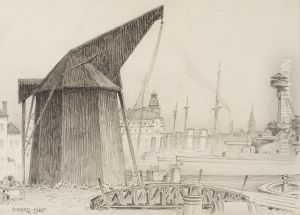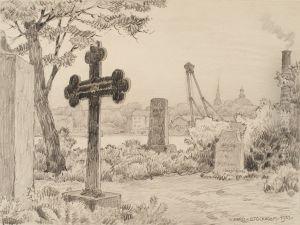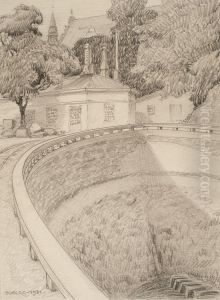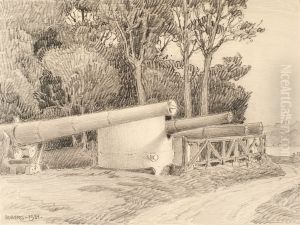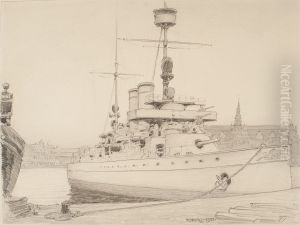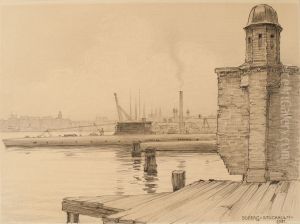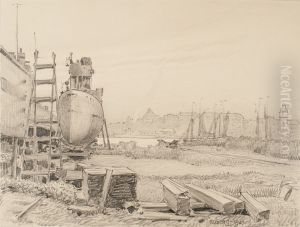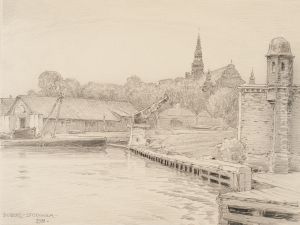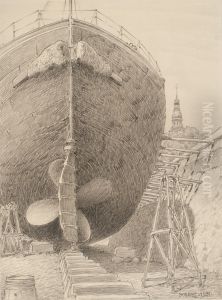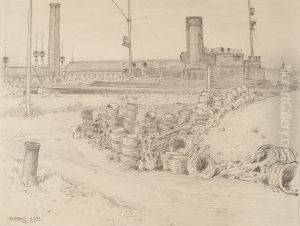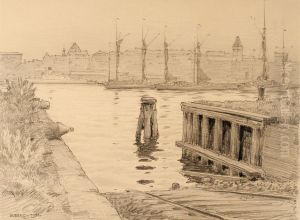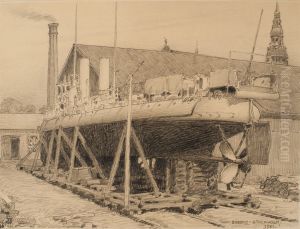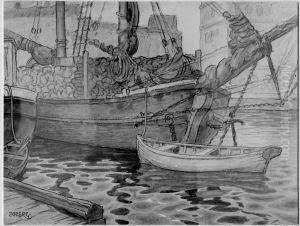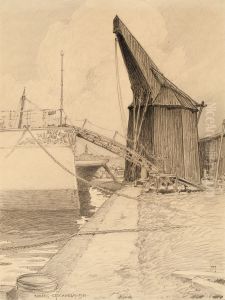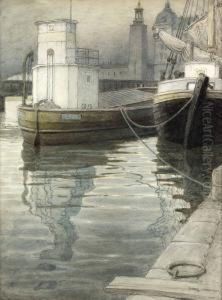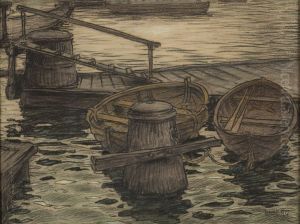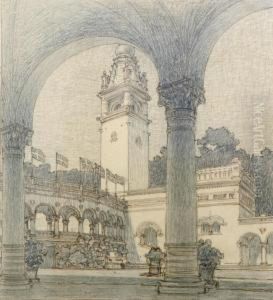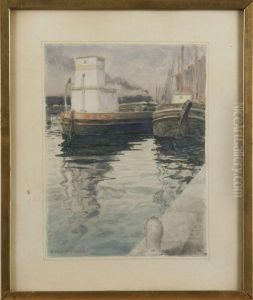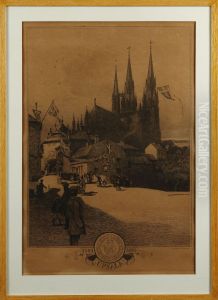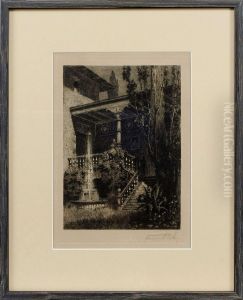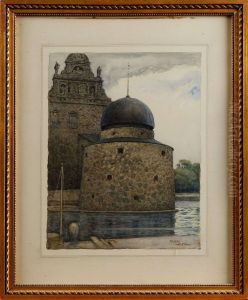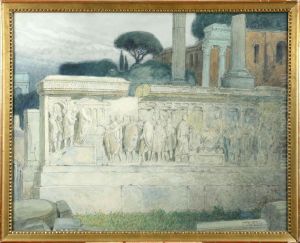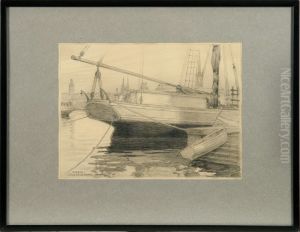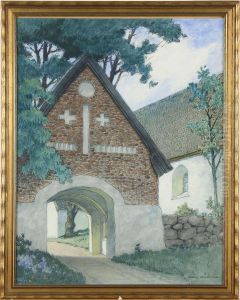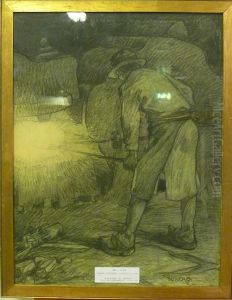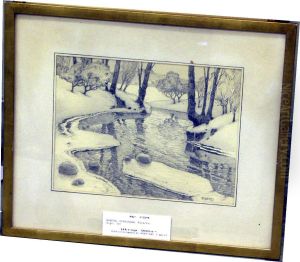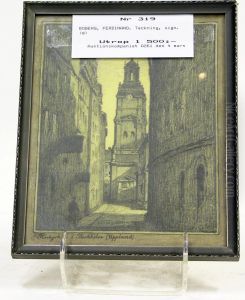Ferdinand Boberg Paintings
Ferdinand Boberg was one of Sweden's most renowned architects during the late 19th and early 20th centuries, whose work significantly influenced the architectural landscape of Sweden and beyond. Born on April 11, 1860, in Falun, Sweden, Boberg showed an early interest in drawing and architecture, which led him to pursue studies in this field. Despite the lack of formal architectural education, Boberg's talent and dedication quickly propelled him to the forefront of Swedish architecture.
Boberg's career was marked by a remarkable versatility, as he designed a wide range of buildings, including industrial facilities, public buildings, private residences, and churches. His architectural style evolved over time, incorporating elements from various movements, including Art Nouveau and National Romanticism, which were prevalent during his formative years. Among his most famous works are the Nordiska Kompaniet department store in Stockholm and the Waldemarsudde residence, now a museum, in Djurgården, Stockholm. These buildings are celebrated for their innovative use of materials, structural ingenuity, and attention to detail, reflecting Boberg's ability to blend functionality with aesthetic appeal.
In addition to his architectural projects, Boberg also contributed to the field through his travels and sketches. He undertook extensive journeys to countries such as Russia, Greece, and Egypt, where he documented architectural styles and details, later influencing his work and Swedish architecture more broadly. His sketches and observations from these travels were published, offering valuable insights into the architectural diversity and heritage of different cultures.
Despite his success, Boberg's career was not without challenges. The changing architectural trends and economic conditions of the early 20th century impacted his practice. However, his legacy as a pioneering architect remained, influencing subsequent generations of architects and designers. Boberg's contributions to architecture were recognized in his time, and his works continue to be studied and admired for their design quality and historical significance.
Ferdinand Boberg passed away on May 7, 1946, leaving behind a rich architectural heritage that continues to be celebrated in Sweden and internationally. His life and work are testament to the enduring impact of innovative design and the importance of cultural and architectural exploration.
